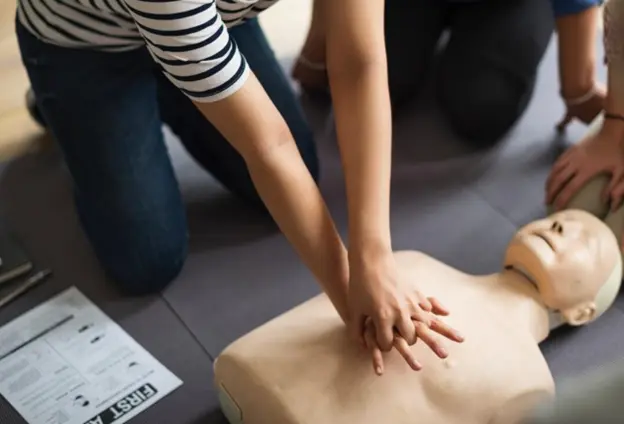Have you ever wondered what to do when it’s time for your CPR renewal? Whether you’re a healthcare worker, teacher, or just someone who wants to be prepared, knowing when and how to renew your CPR certification is important.
CPR (Cardiopulmonary Resuscitation) is a life-saving skill, and keeping your certification up-to-date ensures you’re ready in case of an emergency. In this guide, you will learn everything you need to know about CPR renewal.
By the end, you’ll feel confident about renewing your certification and continuing to help save lives.
Why is CPR Renewal Important?
CPR renewal is essential because it helps you stay current with the latest techniques. When you take CPR certification, you learn life-saving methods. However, over time, these methods may change to improve patient care.
Regular CPR renewal ensures that your skills are up to date, keeping you prepared for emergencies. If you have taken CPR training before, you know how important it is to react quickly in life-threatening situations. Regular CPR renewal ensures you don’t forget vital steps and stay confident when it’s needed most.
How Often Should You Renew Your CPR Certification?
You should renew your CPR certification every two years. CPR guidelines and techniques change as new medical research is conducted. This is why CPR renewal is necessary to stay informed.
Whether you have a basic CPR certification or a more advanced certification like BLS (Basic Life Support), the timing for renewal remains the same. If you’re looking for a more advanced certification, consider BLS training, which covers CPR for adults, children, and infants.
For healthcare professionals, ACLS (Advanced Cardiovascular Life Support) and BLS certification are often required to stay up-to-date in their field. These certifications help you handle more complex situations.
Where Can You Take CPR Renewal Courses?
You can take CPR renewal courses in many places. There are local hospitals, fire departments, and online platforms that offer CPR training. Online options, such as the one at https://cprcertificationnow.com/products/cpr-first-aid-certification, provide flexibility to take courses at your own pace.
Whether you’re renewing BLS certification or CPR certification, online courses can fit into any schedule. Courses usually consist of video lessons, quizzes, and practical exams. Some courses may also require you to attend a skills test or in-person session.
It’s a good idea to choose a course that suits your learning style and schedule.
What Are the Benefits of CPR Renewal?
Renewing your CPR certification offers several benefits. First, it keeps your skills sharp. You’ll learn the latest techniques for handling emergencies.
Whether you’re doing chest compressions or using an AED (Automated External Defibrillator), the training will make you more confident in your ability to act quickly. Additionally, CPR renewal gives you peace of mind. By knowing you have the most recent CPR skills, you’ll feel ready in case someone needs your help.
Get Ready for Your CPR Renewal Today
It’s never too early to think about your CPR renewal. Whether you’re updating your CPR certification or upgrading to BLS or ACLS certification, it’s important to keep your skills sharp.
You never know when you might be called to act, and having up-to-date training can make all the difference.
Why CPR Renewal Matters: Keep Your Skills Fresh
CPR renewal is essential for anyone who has previously completed CPR training. This certification ensures that you have the skills to respond in an emergency. By keeping up with your CPR renewal, you stay ready and confident in your ability to save lives.
It’s a simple step that can make a big difference in an emergency situation. Did you like this guide? Great! Browse our website for more!

